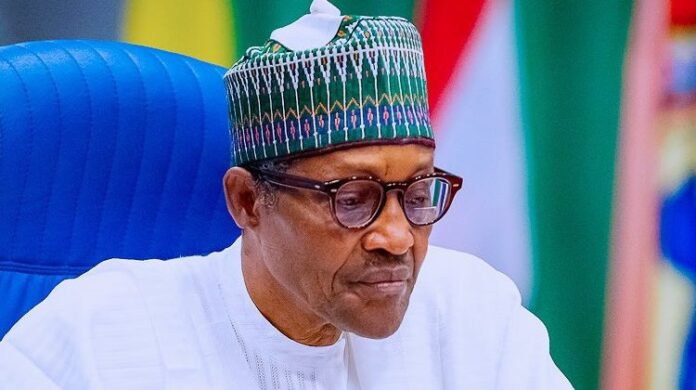By Jeph Ajobaju, Chief Copy Editor
A total $2.78 billion came to Nigeria as foreign capital inflows in the first half of 2021 (H1 2021), a 61.1 per cent decline against $7.15 billion in H1 2020, according to the National Bureau of Statistics (NBS).
Foreign Direct Investment (FDI) was $232.74 million compared with $362.84 million in H1 2020; Foreign Portfolio Investment (FPI) $1.53 billion, lower than $4.69 billion in H1 2020; and Other Investments $1.02 billion.
Foreign inflow has dropped significantly in the past two years, reaching its lowest level in the past four years. The last time Nigeria imported less capital was in H1 2017 when $2.7 billion flowed in, per Nairametrics.
In H1 2021, the largest importation was through Portfolio Investment ($1.53 billion) or 54.8, followed by Other Investments ($1.02 billion) or 36.8 per cent.
Sectoral inflows
Banks received the highest inflows with $1 billion (36 per cent); then Shares $901.3 million (2.4 per cent), Financing $315.11 million (11.3 per cent), Production $250.22 million, and Agriculture ($95.31 million).
Five sectors did not receive foreign capital in H1 2021 – Brewing, Fishing, Hotels, Tanning, and Weaving.
Capital inflows by origin
The United Kingdom topped the list ($1.45 billion), more than half the total, followed by South Africa ($378.9 million), Singapore (8.3 per cent), The Netherlands (5.2 per cent), and the United Arab Emirates ($116.35 million).
Nigeria received a total $2.78 billion from 40 countries in H1 2021.
Progressive foreign investment decline
Nairametrics reports that foreign inflow has dwindled in recent years, attributable to factors which cut across insecurity, economic downturn, ease of doing business, unfavourable policies, among others.
Yet Nigeria needs to improve foreign capital inflows to help boost its economy, especially as it aims to stabilise from recession induced by the pandemic and the wreck caused by the EndSARS protests in October 2020.
Foreign investment drops 77.4 % in Q1 2021
FPI dropped from $4.31 billion in Q1 2020 to $974.1 million in Q1 2021. This was a 1,635 per cent decline against $56.15 million in Q4 2020 that itself had dipped from $1.46 billion in Q3 2020.
Overall, however, figures published by the NBS show that the rate has been falling since after the FPI high watermark of $8.48 billion in Q1 2019 which was 216.3 per cent greater than the sum for Q1 2018.
Nairametrics explains that FPIs generally consist of securities and alternative foreign financial assets passively held by foreign investors.
They involve an investor purchasing foreign financial assets, such as equities, bonds, derivatives, mutual funds, and guaranteed investment certificates, among other instruments.
Breakdown
Investments in money market instruments amounted to $808.57 million or 83 per cent of total FPI in Q1 2021.
Investments in bonds followed with a total $138.7 million (14.2 per cent) invested while $26.88 million was directed towards equity.
February recorded the highest FPI ($503.17 million), followed by March ($440.25 million), and January ($30.72 million).
Trust pensions
The domestic and foreign portfolio investment report of the Nigerian Exchange (NGX) shows that N60.11 billion was recorded as foreign inflows in Q1 2021, a 7.9 per cent decline compared to N65.27 billion Q1 2020.
Foreign outflows surpassed inflows in Q1 2021, with N90.12 billion as foreign outflows and N526.3 billion as domestic transactions.
Reasons for FPI decline
The Nigerian economy has endured a significant downturn in recent times, ravaged by the pandemic, banditry, and insurgency, Nairametrics explains.
The economy has been pushed into stagflation, with unemployment rate at 33.3 per cent as of Q4 2020. In April 2021, headline inflation was18.12 per cent and food inflation 22.72 per cent.
The 2020 Doing Business report of the World Bank ranks Nigeria 131st globally, with a score of 56.9 in terms of ease of doing business.
Besides, the Nigerian Exchange market has witnessed a bearish performance since the beginning of the year, with the All-Share Index recording a year-to-date decline of 4.83 per cent as of May 14.
The decline was caused by huge sell offs in the banking and industrial goods sector.
Mutual funds recorded a bearish performance in Q1 2021 as only 25 out of 118 listed funds posted positive growth in the period.
Since the lockdown and crash in oil prices, Nigeria has attracted fewer FPIs – going from $4.3 billion in Q1 2020 to $385 million Q2 2020 and $407 million in Q3 2020 before recording $56.15 million in Q4 2020 and $974.1 million in Q1 2021.
The decline in foreign investments is attributed to the condition of Nigeria’s economic and business space, as well as by insecurity and structural and policy problems.
Both Abuja and business stakeholders need to take innovative steps to attract foreign investments (FPI and Foreign Direct Investment, FDI) to ensure speedy economic growth.












